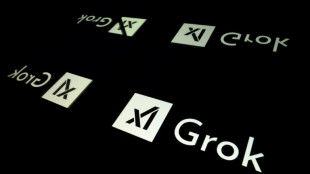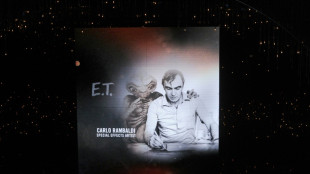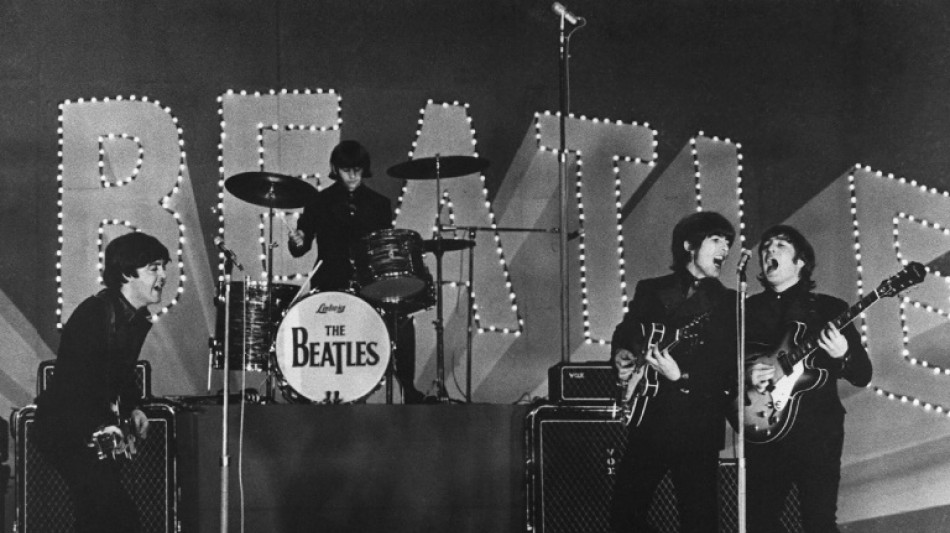
-
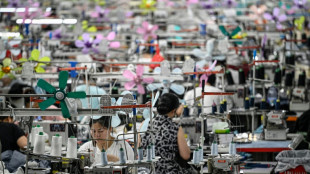 Where things stand in the US-China trade war
Where things stand in the US-China trade war
-
De Bruyne to leave Man City at end of the season

-
 Youthful Matildas provide spark in friendly win over South Korea
Youthful Matildas provide spark in friendly win over South Korea
-
Stocks, oil extend rout as China retaliates over Trump tariffs
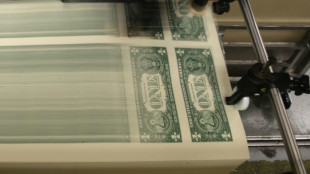
-
 De Bruyne says he will leave Man City at end of season
De Bruyne says he will leave Man City at end of season
-
UK spy agency MI5 reveals fruity secrets in new show
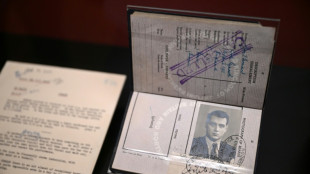
-
 Leverkusen's Wirtz to return 'next week', says Alonso
Leverkusen's Wirtz to return 'next week', says Alonso
-
England bowler Stone to miss most of India Test series

-
 Taiwan earmarks $2.7 bn to help industries hit by US tariffs
Taiwan earmarks $2.7 bn to help industries hit by US tariffs
-
Rat earns world record for sniffing landmines in Cambodia
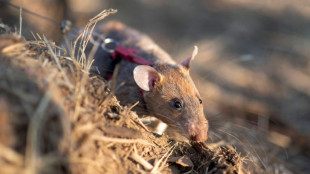
-
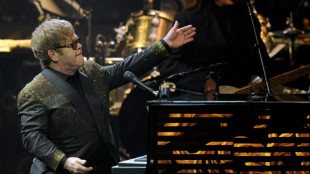 Elton John says new album 'freshest' since 1970s
Elton John says new album 'freshest' since 1970s
-
EU announces 'new era' in relations with Central Asia
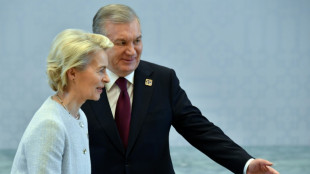
-
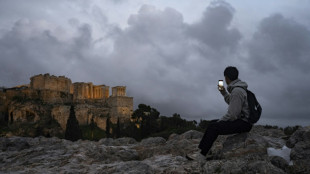 Greece nixes Acropolis shoot for 'Poor Things' director
Greece nixes Acropolis shoot for 'Poor Things' director
-
'Historic moment': South Koreans react to Yoon's dismissal
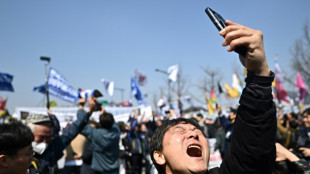
-
 Israel kills Hamas commander in Lebanon strike
Israel kills Hamas commander in Lebanon strike
-
Trump unveils first $5 million 'gold card' visa
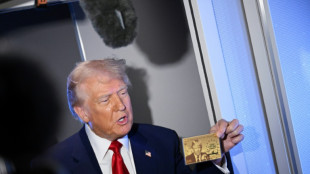
-
 Crashes, fires as Piastri fastest in chaotic second Japan GP practice
Crashes, fires as Piastri fastest in chaotic second Japan GP practice
-
India and Bangladesh leaders meet for first time since revolution
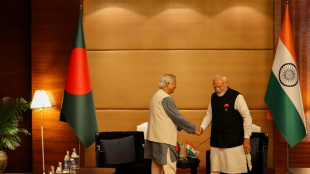
-
 Israel expands ground offensive in Gaza
Israel expands ground offensive in Gaza
-
Families of Duterte drug war victims demand probe into online threats

-
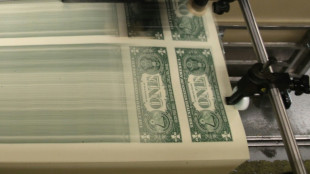 Stocks extend global rout after Trump's shock tariff blitz
Stocks extend global rout after Trump's shock tariff blitz
-
Kolkata's Iyer more bothered about impact than price tag

-
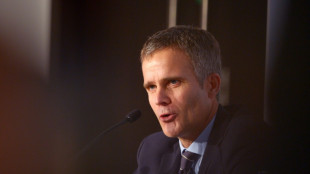 BP chairman to step down after energy strategy reset
BP chairman to step down after energy strategy reset
-
Indian patriotic movie 'icon' Manoj Kumar dies aged 87
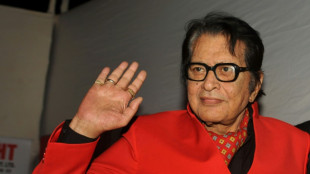
-
 China floats battle barges in Taiwan invasion plans
China floats battle barges in Taiwan invasion plans
-
McLaren's Piastri fastest in chaotic second Japanese GP practice

-
 South Korea seize two tons of cocaine in largest-ever drug bust
South Korea seize two tons of cocaine in largest-ever drug bust
-
Pacific nations perplexed, worried by Trump tariffs

-
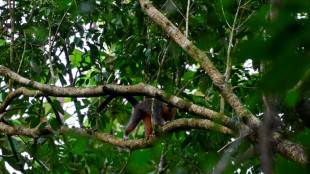 The race to save the Amazon's bushy-bearded monkeys
The race to save the Amazon's bushy-bearded monkeys
-
TikTok must find non-Chinese owner by Saturday to avert US ban
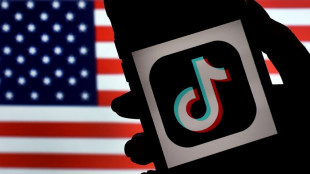
-
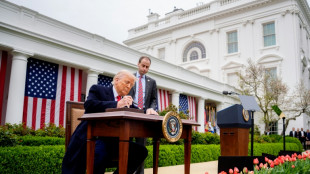 Trump tariffs to test resiliency of US consumers
Trump tariffs to test resiliency of US consumers
-
Clamping down on 'forever chemicals'

-
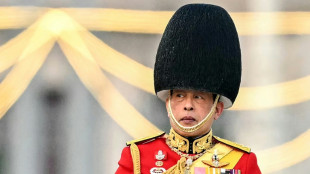 Prominent US academic facing royal insult charge in Thailand
Prominent US academic facing royal insult charge in Thailand
-
Yana, a 130,000-year-old baby mammoth, goes under the scalpel
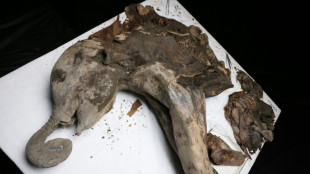
-
 'Don't want to die': Lesotho HIV patients look to traditional medicine
'Don't want to die': Lesotho HIV patients look to traditional medicine
-
Curry scores 37 as Warriors outgun LeBron's Lakers

-
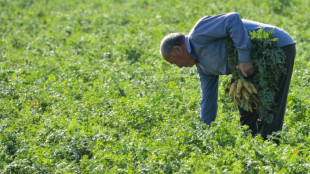 Crops under threat as surprise March heatwave hits Central Asia: study
Crops under threat as surprise March heatwave hits Central Asia: study
-
Japan PM says Trump tariffs a 'national crisis'

-
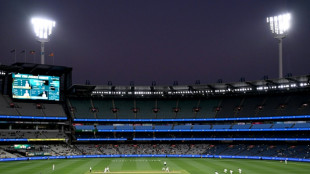 Security 'breakdown' allows armed men into Melbourne's MCG
Security 'breakdown' allows armed men into Melbourne's MCG
-
Norris fastest in Japan GP first practice, Tsunoda sixth on Red Bull debut

-
 Albon says Thailand taking bid for F1 race 'very seriously'
Albon says Thailand taking bid for F1 race 'very seriously'
-
'It's gone': conservation science in Thailand's burning forest
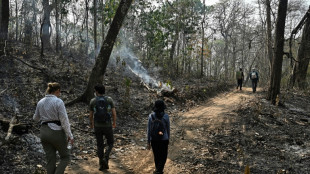
-
 Protest as quake-hit Myanmar junta chief joins Bangkok summit
Protest as quake-hit Myanmar junta chief joins Bangkok summit
-
EU leaders push for influence at Central Asia summit
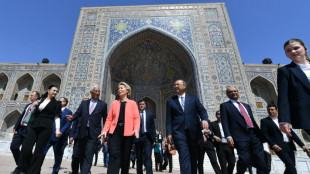
-
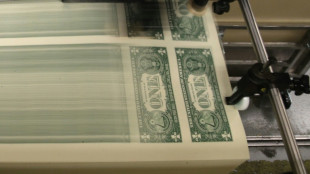 Asian stocks extend global rout after Trump's shock tariff blitz
Asian stocks extend global rout after Trump's shock tariff blitz
-
Lewandowski, Mbappe duel fuelling tight La Liga title race

-
 South Korea court upholds President Yoon's impeachment, strips him of office
South Korea court upholds President Yoon's impeachment, strips him of office
-
Liverpool march towards title as Man City face Man Utd

-
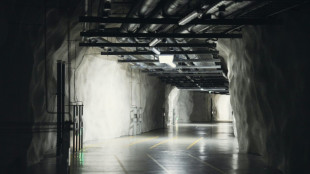 Finland's colossal bomb shelters a model for jittery Europe
Finland's colossal bomb shelters a model for jittery Europe
-
Athletes frustrated as France mulls Muslim headscarf ban in sport
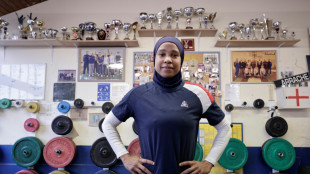

Beatles' Grammy nod spotlights music industry's AI debates
Beyonce, Kendrick Lamar and...The Beatles?
The Fab Four broke up more than half-a-century ago and only two members are living, but they are among the contenders for the Grammy celebrating the year's best record, a head-scratching nomination that highlights the Recording Academy's ongoing debate on how to handle artificial intelligence.
News that The Beatles would release the song "Now and Then" with an AI assist triggered excitement for some fans but outrage among others, as some jumped to the conclusion that deepfakes were involved.
That isn't the case: "Now and Then" was made using "stem separation," a type of AI technology that allowed for cleaning up the decades old, lo-fi demo plagued by excess noise.
They used it to isolate John Lennon's vocals from the unwanted bits of the recording, making it usable.
Creators then added electric and acoustic guitar recorded in 1995 by the late George Harrison, completing the song with drums from Ringo Starr and bass, piano and slide guitar from Paul McCartney, along with additional backing vocals.
And the Recording Academy behind the Grammys gala -- set for Sunday in Los Angeles -- deemed it eligible to win Record of the Year, one of the night's top prizes, as well as Best Rock Performance.
- 'Elements of AI material' eligible -
The institution has been grappling for years with AI's implications for the music industry, as many artists voice serious concern over the ethics of music generated by the technology.
The Academy released a ruling in 2023 that "only human creators are eligible" to be considered for Grammys.
"A work that contains no human authorship is not eligible in any categories," read the detailed rules.
But, it adds, "a work that features elements of AI material (ie, material generated by the use of artificial intelligence technology) is eligible in applicable categories."
The takeaway: as it stands, work created with purely generative AI isn't eligible.
Songs touched by AI tools that polish rather than create -- like "Now and Then" -- can be considered.
As McCartney has put it regarding the Beatles track: "Nothing has been artificially created."
- 'Slippery slope' -
Nashville singer-songwriter Mary Bragg told AFP the type of technology used on "Now and Then" is quite common, calling its development a real "a-ha moment" for producers and engineers.
She said the tool is used routinely enough that the shock in media coverage over its use on the Beatles song was a bit overwrought.
Still, Bragg said the implications of AI tools in music remains a "big deal, because it is a new realm that we're all existing in now."
The questions are far-reaching and "it is certainly a slippery slope," she told AFP. "You have people learning about what's possible more and more."
"If the integrity of the art is not preserved, that's when it's of major concern."
At the forefront of artists' concerns are issues like their work being used without clear permission or to train AI software, or their likeness being forged, with Bragg calling those examples "definitely part of the slippery slope category."
Linda Bloss-Baum, a lecturer at American University and a member of the board of directors of the Songwriters of North America, said many aspects of AI worry her -- but not the tech used on the Beatles track.
"There's a lot of bad that can come to artists from AI, but this is an example of something really good," she said.
"I think it's a really good example of how AI can come to benefit artists, if they so want," she added about the song, which was made with permission from the estates of Lennon and Harrison.
The announcement that The Beatles were in the running for one of the top Grammys triggered some eyerolls from industry watchers and social media users over the nomination of a legacy act alongside, or instead of, contemporary acts.
But the Grammys are an industry award and not fan-chosen -- and sometimes nominations have a behind-the-scenes thought process that makes sense to Academy members even if it leaves the general public puzzled.
For one thing, Bragg noted that the prize for Record of the Year goes to song engineers and producers as well as the artists.
Including The Beatles is "a nod to what is likely to be the case in the future in the world of recording," she said.
Several of the acts up for the prize have been nominated before but never won it, including Beyonce, Lamar and...The Beatles.
It's the group's fifth chance in the category; the last time was in 1971, for "Let It Be."
F.Schneider--AMWN
